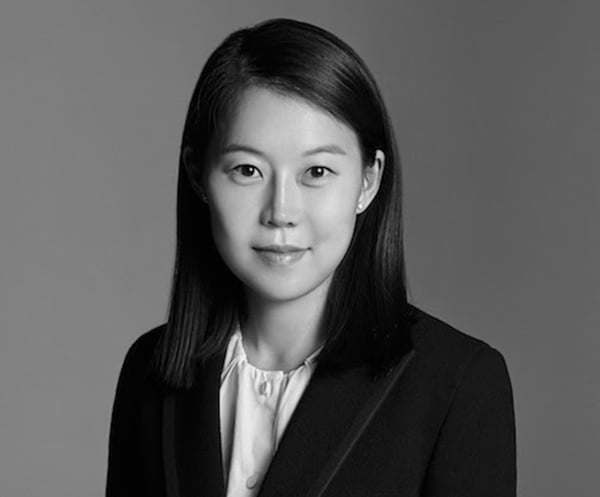
The bitter battle between a top New York gallery and one of its former employees rages on.
Bona Yoo, who last month was sued by Lehmann Maupin Gallery for allegedly stealing trade secrets before beginning a job with a competitor, has responded to the lawsuit—and countered with a claim of her own. Yoo, who quit last fall to become a sales director at Lévy Gorvy Gallery, filed a formal reply on February 8 in New York federal court.
Yoo’s response paints her former employer’s lawsuit as a case of sour grapes. Lehmann Maupin, which is run by art dealers Rachel Lehmann and David Maupin, filed the suit “not to redress any wrongs by Ms. Yoo,” but rather “to spite its former employee” for pursuing “a promising career opportunity at another prominently-known art gallery,” according to court papers.
Yoo alleges that the gallery was desperate to contrive a basis to sue her in order to publicly attack her without fear of defamation claims. She had worked in various capacities at Lehmann Maupin since 2015, with a focus on cultivating collectors in Korea and elsewhere in Asia.
The court papers note that Lehmann Maupin is not a software company, biotechnology firm, or any other sort of organization that invents secret technologies that it needs to protect. Instead, it is a gallery that sells works of art primarily by mid-career artists. The purported trade secrets that Yoo allegedly stole consist largely of clients’ personal contact information, according to the court papers. And Lehmann Maupin does not own its clients or their contact information, particularly because many of the individuals are clients Yoo brought to the gallery, the suit states.
Yoo concedes that when she left, she did copy “certain personal files onto a flash drive” and deleted certain private information belonging to clients, many of whom are personal friends, primarily because she believed that they would not feel comfortable leaving that information with Lehmann Maupin once she departed, the reply asserts.
The gallery director does not believe her actions violated her confidentiality and non-solicitation agreement with her former employer, nor did they violate any law. She states that there was nothing surreptitious about her conduct.
While defending herself, Yoo also struck out against Lehmann Maupin, claiming that the gallery made “a reckless decision” to file suit in order to punish her for leaving and that it did not need to proceed with legal action in order to get the information it wanted. Indeed, the same day Lehmann Maupin threatened to file a restraining order against her in mid-November, Yoo claims she offered to give the gallery a copy of the flash drive, which she later delivered. She also asserts that Lévy Gorvy (which is not referenced by name, only as “her new employer”) had no intention of soliciting Lehmann Maupin’s clients.
In light of Yoo’s immediate responsiveness, Lehmann Maupin was unable to file the restraining order request, according to court papers. But the gallery still “remained intent on punishing Ms. Yoo,” thus replacing the restraining order request with the current lawsuit and tipping off press, she claims.
Because of this, Yoo alleges that Lehmann Maupin violated the terms of their separation agreement, under which both parties agreed not to “impugn, disparage, or defame” one another.
Yoo points out that the amended complaint contained “virtually no substantive changes” from the original except one: Her name was changed from Hyun-Yi Yoo to add her nickname, “Bona.” This tweak ensured that the “baseless allegations” would appear in all future Google searches of her name.
“Lawsuits are meant to redress harms that are actually suffered—not to be used as instruments for employers to punish employees who dare to leave for more promising career opportunities by tarnishing their Google search profiles,” the suit states.
Neither Lehmann Maupin nor attorneys for Bona Yoo responded to a request for comment by press time.